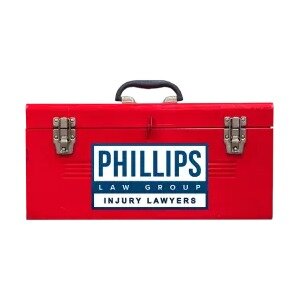Best Franchising Lawyers in Phoenix
Share your needs with us, get contacted by law firms.
Free. Takes 2 min.
List of the best lawyers in Phoenix, United States
About Franchising Law in Phoenix, United States
Franchising is a business model where a company (franchisor) grants a license to an individual (franchisee) to operate a business using their established brand, systems, and support. Franchising law in Phoenix, United States governs the legal aspects surrounding this business relationship.
Why You May Need a Lawyer
There are several situations where seeking legal help in franchising is advisable:
- Reviewing and negotiating franchise agreements
- Resolving disputes or breaches of contract
- Understanding legal rights and obligations as a franchisee
- Assisting with franchise disclosure documents
- Protecting intellectual property rights
Local Laws Overview
Franchising in Phoenix, United States is subject to both federal and state laws, which cover aspects such as:
- Franchise sales and registrations
- Franchise disclosure requirements
- Business licensing and permits
- Consumer protection regulations
- Contract and employment laws
Frequently Asked Questions
1. Can any business be turned into a franchise?
Not all businesses are suitable for franchising. Generally, successful franchises have proven business models, unique features or systems, and scalability potential.
2. Are there initial costs associated with starting a franchise?
Yes, starting a franchise entails expenses such as franchise fees, royalty payments, marketing contributions, and initial inventory or equipment purchases. These costs vary from franchise to franchise.
3. Can a franchise agreement be negotiated?
Franchise agreements are typically drafted by franchisors, but they can be negotiated to some extent. A lawyer can help review the terms, negotiate changes, and protect your interests.
4. What should I look for in a franchise disclosure document?
A franchise disclosure document (FDD) provides important information about the franchisor, fees, obligations, trademarks, litigation history, and more. It is crucial to carefully review the FDD and seek legal advice to fully understand its contents.
5. What are the potential risks of franchising?
Franchising involves risks like any other business venture. These may include failure to meet financial expectations, limited control over business decisions, competition from other franchisees, and potential disputes with the franchisor.
Additional Resources
For further information and assistance in franchising law, consider reaching out to the following resources:
- International Franchise Association (IFA) - www.franchise.org
- Arizona Franchise Law Section - State Bar of Arizona - www.azbar.org
- Arizona Department of Commerce - Business Services Division - www.azcommerce.com
Next Steps
If you require legal assistance in franchising, it is recommended to take the following steps:
- Research and gather information about your specific franchise and the related laws.
- Prepare a list of questions and concerns to discuss with your potential lawyer.
- Consult with a reputable franchise lawyer who specializes in franchising law in Phoenix, United States.
- Share all relevant documentation and details about your franchise for a thorough evaluation.
- Work closely with your lawyer to negotiate agreements, resolve disputes, and ensure compliance with franchise laws.
Lawzana helps you find the best lawyers and law firms in Phoenix through a curated and pre-screened list of qualified legal professionals. Our platform offers rankings and detailed profiles of attorneys and law firms, allowing you to compare based on practice areas, including Franchising, experience, and client feedback.
Each profile includes a description of the firm's areas of practice, client reviews, team members and partners, year of establishment, spoken languages, office locations, contact information, social media presence, and any published articles or resources. Most firms on our platform speak English and are experienced in both local and international legal matters.
Get a quote from top-rated law firms in Phoenix, United States — quickly, securely, and without unnecessary hassle.
Disclaimer:
The information provided on this page is for general informational purposes only and does not constitute legal advice. While we strive to ensure the accuracy and relevance of the content, legal information may change over time, and interpretations of the law can vary. You should always consult with a qualified legal professional for advice specific to your situation.
We disclaim all liability for actions taken or not taken based on the content of this page. If you believe any information is incorrect or outdated, please contact us, and we will review and update it where appropriate.
















